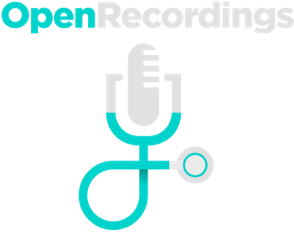
AudioCare. Sharing meaningful moments from psychotherapy in the treatment of substance use and co-occurring disorders
Principal Investigator
Paul Barr, PhD MPH (Geisel School of Medicine, Dartmouth); Nicholas Jacobson, PhD (Geisel School of Medicine, Dartmouth).
Public Health Relevance
Our proposed project builds on prior work that demonstrates potential benefits of recordings and extends them. Amplifying the potential impact of this innovative strategy is the growth of telemedicine, especially in response to COVID-19, and use of technology to support psychotherapy. With the ubiquity of smartphones, recording interventions can now be quickly scaled, providing an opportunity to reach an unprecedented number of patients with substance use disorder and co-occurring mental health disorders.
Funding Source
Center for Technology and Behavioral Health (CTBH) Pilot Core (funded through the NIH/NIDA Technology-based Treatments for Substance Use Disorders P30DA02996. PI Lisa Marsch)
Project Period: November 2021 - November 2022
Team Members:
Luke Archibald MD (Co-Investigator);, Robert Brady, PhD (Co-Investigator); Reed Bratches, PhD MPH (Co-Investigator); Alan Budney, PhD (Co-Investigator); Lisa Mistler MD (Coordinator), Lisa Oh, MS (Co-Investigator)
Project Summary
Substance use disorder (SUD) is a leading cause of disability in the United States. The chronicity of SUD is compounded by often coexisting affective disorder (co-occurring disorders). Psychotherapies have demonstrated efficacy in trials treating a range of mental illnesses, including SUD, but the real-world effectiveness of therapy is lower. The most effective psychotherapy is achieved through continuing therapeutic support with ‘booster sessions’ of therapy, yet this is difficult to achieve due to the limited supply of therapists and cost to patients. Recently, there has been major growth in the utilization of technology to augment traditional psychotherapy. The use of audio-recording is a strategy to increase the effectiveness of psychotherapy and to maintain the positive changes made by patients for co-occurring substance use and affective disorders. In this pilot project, we will recruit patients receiving psychotherapy for SUD with a co-occurring affective disorder in an outpatient setting. We will 1) identify which parts of the psychotherapy session patients perceive to be most meaningful by asking the patient and therapist to independently identify moments they perceive to be most impactful for their treatment 2) explore the sentiment of the therapy session known to moderate the treatment’s effectiveness, and whether it is related to meaningful moments and 3) analyze whether the task of reviewing an audio-recording of therapy impacts interactions at a follow up therapy session. We will follow the NIH Stage Model of intervention development, addressing the gap in our understanding of what information is most important from psychotherapy sessions and the feasibility of a recording intervention, guided by the Behavior Change Wheel. We hypothesize visit recordings, coupled with a robust Natural Language Processing model that highlights meaningful moments during psychotherapy visits, could increase psychotherapy effectiveness by providing a convenient annotated record of these visits for patients.

